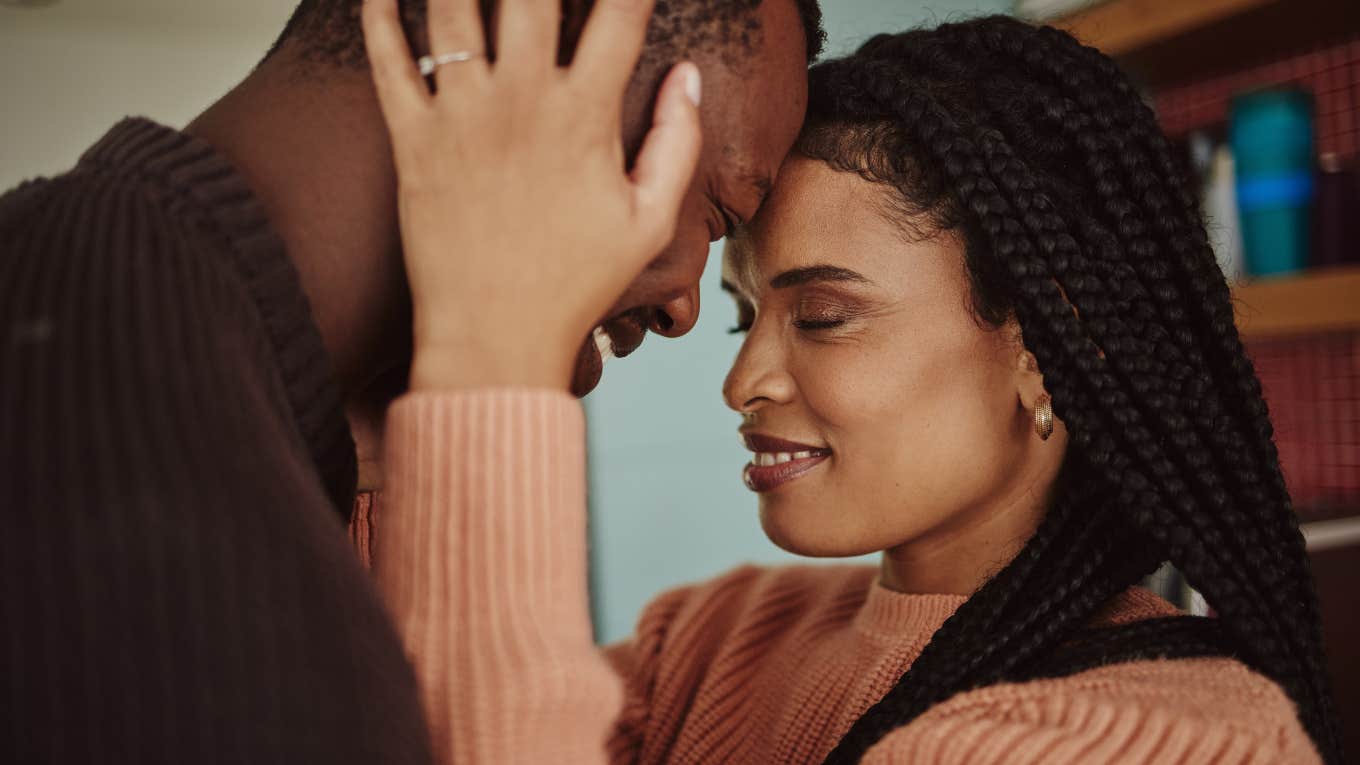People Who Know How To Resolve Conflict In Relationships Master These 8 Necessary Skills
Couples who can navigate their differences are more likely to stay together.
 PeopleImages.com - Yuri A / Shutterstock
PeopleImages.com - Yuri A / Shutterstock It’s all too easy to imagine you and the person you fell in love with will eternally get along and experience zero conflicts.
Unfortunately, this is a fantasy. No matter who you choose to partner up with, you're going to have problems and you're going to have fights.
That's why it's so important to learn to your resolve conflicts as a team. A lasting loving partnership requires that you and your partner share the same values, not just the spark of attraction.
When you value the same things, it's easy to get back on the same page when there's conflict, because you share a vision of where you’re going together.
Here are 8 necessary skills you need to learn in order to resolve conflict in a relationship.
1. Knowing how to calm yourself down.
If you're triggered, nothing productive can happen until you calm down. This is not your partner’s responsibility. It's up to you to get your nervous system back online.
Request that the two of you take a break from the conflict. Sit or lie down. Place your hand on your chest or on your navel.
Breath slowly, in and out, until you begin to feel your body and mind calming down. Once you're present, grounded, and calm, you can go back to your partner and begin the process of repair.
2. Staying curious about each other.
Do your best to have an open mind and not jump to conclusions about your partner’s behavior.
When you're curious about what's going on with your partner, you're not only less focused on your own hurt and anger, but you're open to discovering what's going on with them.
Listen and resist the urge to interrupt, explain, or defend yourself. This way, you can discover more about what's really going on with your partner rather than jump to conclusions or make assumptions.
3. Taking responsibility for your part.
Without responsibility, there can be no real healing. You want to take 100 percent responsibility for your thoughts, your feelings, and your actions.
However, you want to be aware of any urge to take responsibility for your partner’s thoughts, feelings, and actions.
Keep your side of the street clean and avoid trying to clean up the other side of the street. You're not responsible for your partner. You're responsible only for yourself.
4. Communicating authentically.
Focus on sharing how you feel without providing your opinion of your partner’s actions. Authenticity has a high vibration and when you communicate authentically you invite your partner to meet you at a high level of authenticity.
 LightField Studios / Shutterstock
LightField Studios / Shutterstock
When the two of you are authentic, you can create true intimacy and connection.
5. Having compassion for each other (and for yourselves).
Everyone gets triggered and their own unique strategy for what they do when they are triggered.
Have compassion for yourself and your partner when either one of you gets triggered emotionally and doesn’t behave well. This can be healing for both of you.
6. Understanding that love doesn’t require you to agree about everything.
Conflicts often arise when you are disconnected from either yourself or your partner. This disconnection can create misunderstandings and can be triggering.
Restoring connection doesn’t require agreement.
Agreement is an ego desire and it keeps you in the power struggle of arguing who is right and who is wrong. When the two of you are emotionally connected you may find the conflict is no longer important.
7. Asking for (and offering) amends.
Sometimes things happen in an argument that you later regret. Or your partner behaves in a way that's hurtful. Repairing this kind of argument requires more than just an apology. You may need to make or ask for amends.
Amends are a way of saying, "I screwed up and I regret my behavior and I want to make it up to you."
Amends can be a powerful tool for forgiveness and for creating a lasting bond because by making amends, you're letting your partner know how important they are to you.
8. Picking your battles.
One of the least useful phrases about conflict in a relationship is to "pick your battles." You're not at war with your partner and keeping things to yourself builds anger and resentment.
Instead, clean as you go. Clean up the little misunderstandings and the minor annoyances before they become something bigger that can blow up like a volcano.
Not all conflict in a relationship is created equal.
There are disagreements between people that can be discussed calmly and then there are conflicts that have the potential to blow up into a fight. So what’s the difference?
It all depends on how resourceful you are at the time of the clash. Does the conflict trigger an old wound within one or both of you?
Stress also makes you less resourceful.
Whether you didn’t sleep well, have a deadline at work, or feeling anxious about life, you're not at your best when under duress.
When you're not at your best, you're less likely to be able to stay calm and present during a disagreement. When you're grounded, present, and feeling good, you're more likely to be open to your partner and not take things personally.
Sometimes, the nature of the conflict triggers a wound that isn’t about the person in front of you.
It's important to be able to recognize and acknowledge when your wounds are triggered.
Your mind is designed to batch situations together and jump to conclusions, linking things together that are not necessarily the same.
There's nothing quite like being in a relationship with someone who loves, respects, and accepts you enough to take the uncomfortable steps necessary to repair conflict and create a stronger bond.
Every relationship will begin with a romance stage where it seems like you’re just magically made for one another. Be prepared for the hangover of the second stage of relationships: the power struggle stage.
No couple skips the power struggle, so it is important to act like a grownup and practice the skill set above.
Orna and Matthew Walters are dating coaches and founders of Creating Love On Purpose with a holistic approach to transforming hidden blocks to love, and the authors of Getting It Right This Time.

